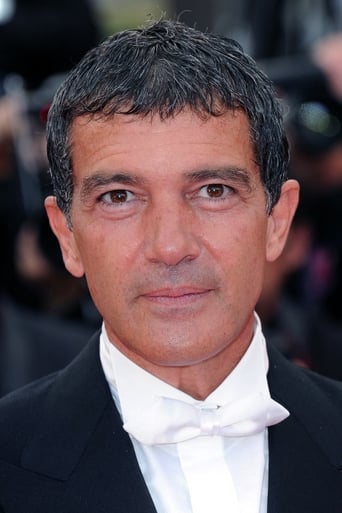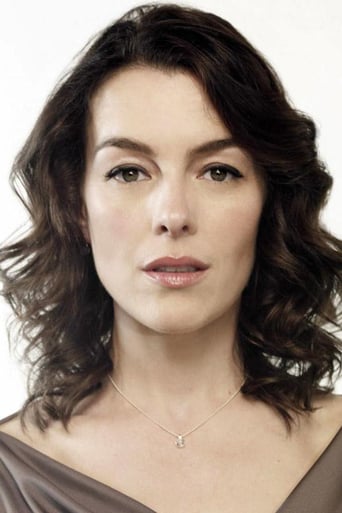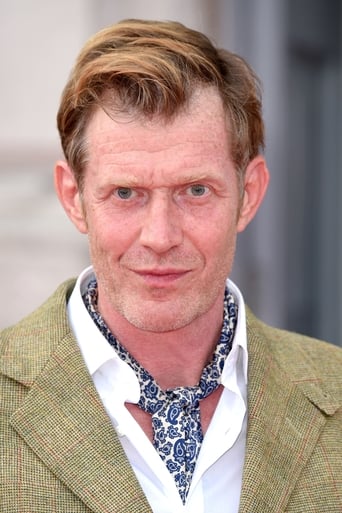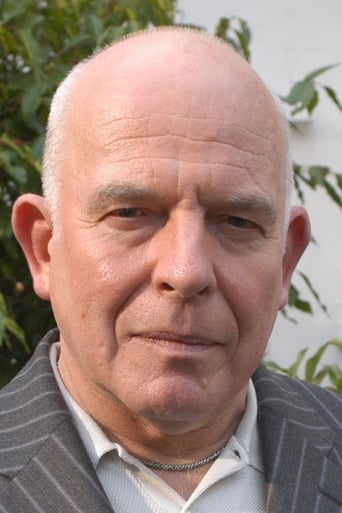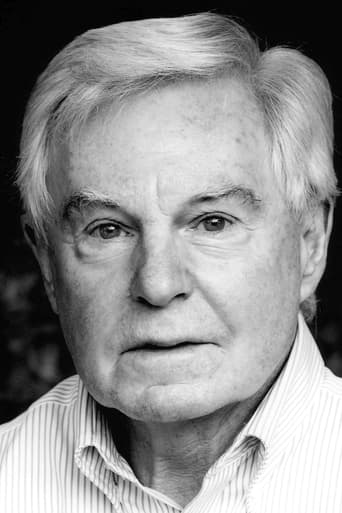BootDigest
Such a frustrating disappointment
PiraBit
if their story seems completely bonkers, almost like a feverish work of fiction, you ain't heard nothing yet.
Blake Rivera
If you like to be scared, if you like to laugh, and if you like to learn a thing or two at the movies, this absolutely cannot be missed.
sol
**SPOILERS** Complicated religious thriller involving the finding of the remains, or bones, of a man who was crucified around the time of Jesus. The facts that the remains were found, under Nasir Hamid's hardware shop, in a discovered underground tomb in Jerusalem made it a political hot potato for everyone involved: The Vatican the Palestinians and Israelis.The film "The Body" has the Vatican send Father Matt Gutierrez to Jerusalem in order to keep the discovery from seeing the light of day in the fear if in fact it is Jesus' remains it will shake the very foundations of the Catholic Church: The death and resurrection of Christ! The Israelis under the guise of Israeli top official Moshe Cohen use the discovery for their own political purposes! Cohen want to use the bones to pressure the Vatican to recognize a united Jerusalem as the capital of the Jewish state of Israel! As for the Palestinians they have the most to lose. The fact that they may well end up behind the eight ball by having the Vatican and the entire Christian world leave them out in the cold by disenfranchising them from their claim that Jerusalem is their, not Israel's, capital.Getting in touch with the Israeli archaeologist Sharon Golban in charge of determining if the bones are genuine Father Matt, a former intelligence officer in El Salvador before he became a priest, becomes more and more convinced, as the evidence mounts, that they are that of Jesus! Going against his superiors- Cardinal Pesci-wishes Father Matt is now in danger of not only being defrocked but losing his faith in the church, and religion, that's saved him from a life of guilt, in what he did back in El Salvador, and misery!The movie has Palestine radical Abu Yosef use every mean at his disposal to keep the truth of the discovery of Jesus' remains, if that's what they are, from being used by the Israeli Government to its advantage: The recognition by the Vatican in a united Jerusalem as Israel's capital! Father Matt in trying to prove, as ordered by Cardinal Pesci, that the bones are not that of Jesus soon realizes that he's being used as a pawn by the Vatican for its political not religious purposes.****SPOILERS*** The movie ends on a bittersweet note in that we never find out the truth of the mysterious remains found in Jerusalem because their destroyed, together with himself, by a wild eyed and insane Abu Yosef. Abu who had his followers kidnap Sharon's two children in order for her to gives the bones to him, for safe keeping, broke his word to Nasir Hamid who was blackmailed by him to kidnap them. This set off a chain of events that lead to not only the bones being destroyed but Father Matt quiting the Catholic Church, as a priest, and ending up seeking God and Jesus in his own personal way. A way in which faith in God not the politics of man guides him.
srobidoux
The only fault I can find is the premise that Banderas is a priest and ex secret agent; that and the guy assigned to watch things has an uncontrollable urge to lean out a window when using a telephoto lens. But all movies have such flaws. I think it's great. I'd recommend it to anyone. The cast is good all around. There's not the shootout of the type in other Banderas movies or large numbers of spontaneously exploding cars. It's thought provoking and timely. On one hand, the conflict over scripture and archeology is ever-present. And the conflict over Jerusalem will be with us a long time as well. I thought this movie did justice to all sides. At the same time it showed all are human. Not easily done these days.
DICK STEEL
The premise of this movie seemed interesting enough, although to some, it might be blasphemy. What if one day, the body (or rather, skeletal remains) of Christ was discovered in a similarly described tomb, with tell tale signs of the crucification, the spear wound, injuries inflicted by the crown of thorns, and the tomb dating back to 1 AD? This film looks at the possible destruction of the faith which hinges on the one man's resurrection as God. Olivia Williams plays an Israeli Sharon Golban, who discovers this body in a tomb she excavates. Suspecting she could be on to something big, she calls for a priest to confirm her suspicion. Soon, word gets around, rumours get spread. The Vatican dispatches one of their priests, Father Gutierrez (played by Antonio Banderas), and ex-military intelligence officer, to investigate and proof or disproof the claim.While science points to the fact that the body may be that of Christ, it gives a chilling insight into what could make, or break, a religion. Is it blind faith that keeps it going, even if there should come a day when science can ultimately disproof certain theories and events? Here, discovering that body has serious implications because of the repercussions that the major event in Christ's life have on Christians. But what diluted this film from its primary premise is the introduction of Hollywood subplots to jazz up production, like having the Vatican embroiled in political intrigue, and having terrorist organizations taking an interest in the findings as well.It's a relatively low budgeted production, but one which raised thought provoking questions even if the delivery somehow got distracted in attempts to become a bigger movie in terms of action sequences. I think this film probably would be a good prologue to the controversies that surround next year's Da Vinci Code.Code 1 DVD contains "special features", but nothing out of the ordinary besides the usual trailers, audio, and scene selections.
Eric Pyle
I've seen the movie The Body a number of times now in the context of discussion groups. How important is it to the Christian faith that Jesus was actually raised from the dead and that his tomb was actually empty? How should faith investigate evidence to the contrary? Secular Science says "Truth, even at the expense of faith." The Politics of Religion prophecies Christianity will survive despite (or worse, because of) evidence to the contrary.As the plot unfolds, the death of the god Jesus becomes more and more a reality to skeptic (Sharon) and faithful (Gutierrez) alike. Together, the dual competing 'truth' seekers suffer between the hands of dual competing political-recognition seekers: Israeli and Palestinean authorities seek political recognition from the Roman Catholic church. Thus, the Catholic church takes on a form of Antichrist, who gains power as the truth and power of Jesus' resurrection becomes more and more doubtful. Satan strikes with a double-edged sword: one edge seeks to destroy the hope of Christ by the pursuit of truth with a secular heart, the other seeks to preserve "Christ" by participating in a game of ransom with the body for political security.Father Lavelle gives into the force of the former. Torn between his identity in the church as a priest, and his identity as a scientist to allow for the possibility that Christ was not raised, he finally yields to scientific evidence, loses all hope in Jesus, and takes his own life, Judas-like. Father Gutierrez, in comparison, resembles Peter, whose child-like faith seems strong up to the end, when his spirit, plagued by the evidence, turns to religious apathy and guilt, and his relationship with Sharon becomes questionably intimate.In the end, Father Gutierrez receives "good news": The truthfulness of Jesus resurrection itself receives resurrection. This first proclamation of gospel, however, is unsatisfying. The dialog is brief, mysterious, and begs for further explanation and confirmation. The viewer is left with the strong need for concrete and conclusive evidence.One major character is left unfilled by the movie's paid actors. In the end, viewers will realize that the movie has casted them for the role of Thomas: We are the ones shown the indisputable evidence that we really longed for. Yet such evidence does not come without an ironic final rebuke from Jesus himself: "Blessed are those who believe and yet have not seen."
